 Weird Stuff
Weird Stuff  Weird Stuff
Weird Stuff  Miscellaneous
Miscellaneous 10 LEGO Facts That Will Toy with Your Mind
 Misconceptions
Misconceptions 10 Widespread Historical Myths and the Texts That Started Them
 Crime
Crime 10 Incredible Big-Time Art Fraudsters
 Movies and TV
Movies and TV 10 Most Influential Fictional Objects in Cinema History
 Our World
Our World Top 10 Real Almost‑Cities That Never Materialized
 Technology
Technology 10 Unsettling Ways Big Brother Is (Likely) Spying on You
 Music
Music 10 Chance Encounters That Formed Legendary Bands
 Space
Space 10 Asteroids That Sneaked Closer Than Our Satellites
 Sport
Sport The 10 Least Credible Superstars in Professional Sports
 Weird Stuff
Weird Stuff 10 of History’s Greatest Pranks & Hoaxes
 Miscellaneous
Miscellaneous 10 LEGO Facts That Will Toy with Your Mind
 Misconceptions
Misconceptions 10 Widespread Historical Myths and the Texts That Started Them
Who's Behind Listverse?

Jamie Frater
Head Editor
Jamie founded Listverse due to an insatiable desire to share fascinating, obscure, and bizarre facts. He has been a guest speaker on numerous national radio and television stations and is a five time published author.
More About Us Crime
Crime 10 Incredible Big-Time Art Fraudsters
 Movies and TV
Movies and TV 10 Most Influential Fictional Objects in Cinema History
 Our World
Our World Top 10 Real Almost‑Cities That Never Materialized
 Technology
Technology 10 Unsettling Ways Big Brother Is (Likely) Spying on You
 Music
Music 10 Chance Encounters That Formed Legendary Bands
 Space
Space 10 Asteroids That Sneaked Closer Than Our Satellites
 Sport
Sport The 10 Least Credible Superstars in Professional Sports
Top 10 Evil Businessmen
Each word in the English language has a strictly defined meaning in the dictionary. Many words have one or two official meanings, while others can be used in numerous ways to describe different situations. “Evil” is an example of a word that has a more ambiguous definition. After all, what one person thinks is evil may not be considered truly evil by another person.
This is an important factor to keep in mind when thinking about the 10 most evil businessmen from modern history. Leaders of businesses large and small have committed acts that can be considered evil time and time again, but only a handful of them have gained the notoriety their crimes deserve. Evil acts from businessmen can range from directly taking a life, sanctioning evil practices that lead to loss of life, or even deceiving employees and the public while defrauding a company of millions of dollars.
The following men have committed acts that made them worthy of inclusion on a list of the Top 10 evil businessmen in modern history. They’ve been ranked from 10 to one and their crimes range from fraud to the sanctioning of massive loss of life. Without further ado, here are your evil businessmen.

Kozlowski’s business career appeared to be a brilliant one complete with a rags-to-riches storyline. After growing up on the wrong side of the tracks, Kozlowski eventually rose to the position of CEO with Tyco. Greed and a lack of moral direction led Kozlowski to siphon off $600 million in company funds for his own use. His excesses included $6,000 shower curtains, lavish parties on the company dime (one pictured above), and false bonuses he claimed were given at the direction of the Board of Directors. Kozlowski is serving a term of no less than eight years, with a maximum of 25, in prison. Tyco survived Kozlowski’s reign.
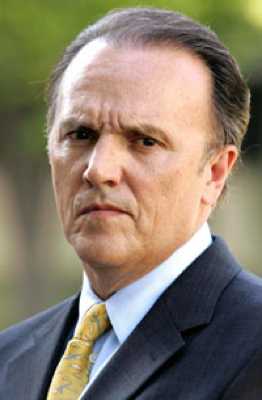
Richard Scrushy’s evil practices while in charge of HealthSouth are almost too numerous to list. He was twice charged with 30 counts each of illegal practices while acting as CEO for HealthSouth. His crimes include authorizing the termination of whistleblowers, bribery, fraudulent accounting practices, extortion, money laundering, and mail fraud among others. Although he managed to avoid jail in 2003 on the first 30 counts, he was later convicted on 30 different charges in 2007 and sentenced to six years and 10 months in prison. HealthSouth survived Scrushy’s abuses.
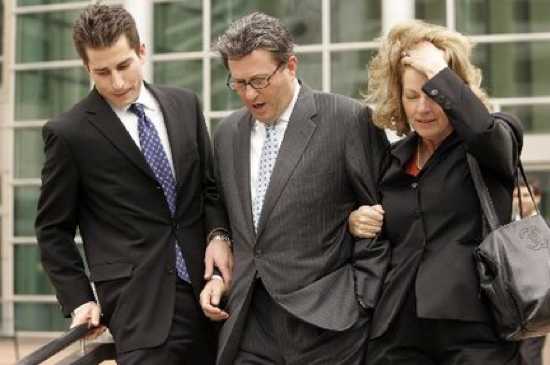
While serving as the CEO of Qwest, Joe Nacchio exhibited a penchant for fabricating the truth to his benefit, and his alone. Nacchio’s lies included inflated revenue claims and false reports of nonexistent upcoming government contracts. He also profited illegally from a run-up in Qwest stock prices. Nacchio was slapped with a $19 million fine, ordered to forfeit $52 million made from illegal trading, and sentenced to six years in prison. Nacchio began serving his term in 2009 and Qwest was eventually acquired by CenturyLink Communications.
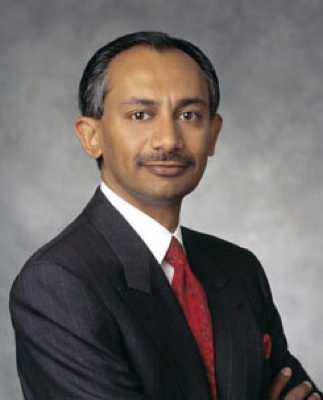
Kumar was the former CEO of Computer Associates who began defrauding the company before 2000. His relatively simple practices included backdating contracts and even adding a week to accounting periods, known as the “35 day month.” Kumar’s crimes might not seem evil, but the extent of his fraud is staggering. Kumar and his accomplices defrauded Computer Associates of $2.2 billion over a period of several years. Kumar was sentenced to 12 years in prison while the company was renamed.
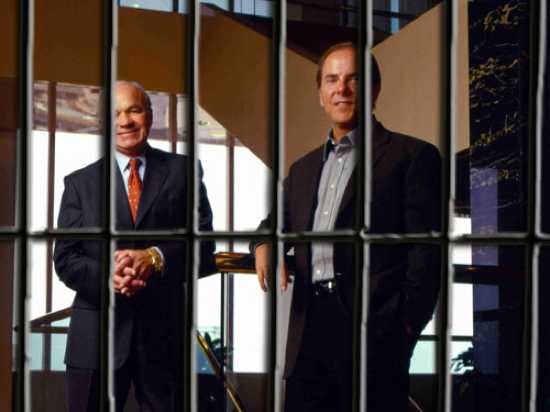
As a big power player at Enron, Skilling encouraged the questionable accounting tactic known as mark-to-market. It allowed Enron to make overly optimistic values for energy prices by appraising company holdings based upon expected values. Skilling also signed off on the creation of an Enron subsidiary called Chewco, which was little more than a dumping ground for Enron’s debt. Skilling was sentenced to 24 years and 4 months in prison. Enron eventually collapsed, taking with it the jobs and life-savings of thousands of employees.
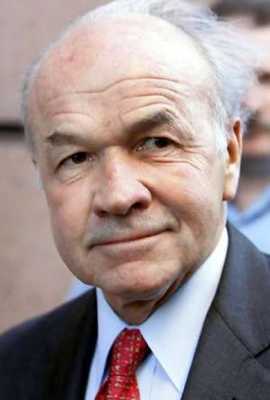
Lay was Skilling’s partner in crime as the two cooked the books at Enron, grossly over valuing the holdings of the company over the course of a number of years. Lay’s actions, like those of Skilling, led to the largest bankruptcy in U.S. history when Enron Corporation failed in 2001. Lay’s underhanded moves cost 20,000 Enron employees their jobs and numerous life savings accounts that were tied to company stocks.

Robert Rubin might be one of the few men who can be directly linked to the 2008 financial collapse that struck the economies of the world. Rubin wriggled his way into the Treasury Secretary position under President Bill Clinton and helped usher in one of the greatest deregulatory eras in U.S. history. Rubin’s works, including the end of the Glass-Steagall Law, made it possible for economically essential banks to gamble taxpayer dollars on volatile stock markets. Those actions allowed the formation of CitiGroup and other “too-big-to-fail” banks and financial institutions. Rubin earned $120 million working for Citi while the bank piled up bad investment after bad investment, eventually requiring a $45 billion government bailout.

Sam Walton and his brother founded Wal-Mart in 1962 and today that company is the largest private employer in the world as well as the largest retailer in the world. For all its wealth, an estimated $421 billion, it has an equal number of evil practices attributable to it. Wal-Mart is most often accused of treating employees like a commodity, and no act better proves that than the case of 52 year-old Deborah Shank.
After becoming paralyzed in a collision with a semi, Shank’s family was awarded $700,000 in damages. The resulting $417,000 the family received after legal expenses was taken away by Wal-Mart. The company sued Shank for $470,000 because her employment contract stipulated any damages won by an employee were property of the company. This left her family to care for her with only the assistance of Medicaid and Social Security payments.
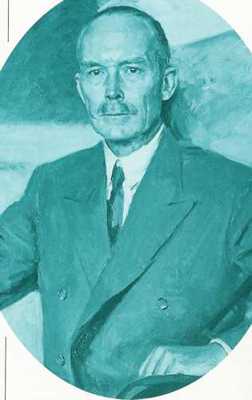
Hermann von Siemens was the CEO of Siemens during World War II. The atrocities of the business begin before the war however. Siemens was a major player in helping the Nazi party rebuild the German Army, improve infrastructure, and eventually help put in place the mechanisms that drove the Holocaust.
During World War II, with von Siemens in charge, the company’s worst acts included operating factories at the infamous concentration camps of Auschwitz and Buchenwald. Jewish slave labor was used in both factories to create electrical switches for military use. Those same slave laborers would later meet a grisly end inside of Siemens-built gas chambers operated at both camps.
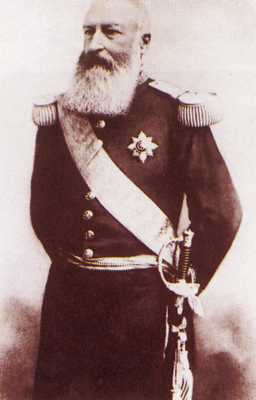
Leopold II used the Conference of Berlin in 1884 to acquire the Congo region of Africa. He established a private company under the guise of a nation called the Congo Free State. Leopold exercised full control of the country as head of the private organization and used a private force of soldier, tax collectors, and gangs to gather up the ivory and rubber resources of the region for the sake of profit.
The atrocities of Leopold’s forces are too numerous to list. In short, his troops forced locals into slave labor collecting ivory, and later rubber, for the company to sell. Laborers who didn’t meet quotas were killed, families of laborers were held as collateral to ensure workers performed up to expectations, and hands were chopped off as proof that under-performers were executed.
At the time Leopold established the Congo Free State, Africa’s population was estimated to have been between 90 and 130 million. Under his control, some 10 to 22 million people were murdered. European countries finally forced Leopold to cede the Congo Free State to the government of Belgium in 1908, but Leopold would never answer for his crimes. He died as the wealthiest man in Europe and spent his massive profits on yachts, homes, and teenage prostitutes.
Evil comes in many shades. Some of the men on this list may not seem evil, but is lying, defrauding, and profiting illegal not an evil activity? After all, if an act needs to be lied about and hidden is it a good deed? Other people unquestionably earned their position on this list by sanctioning murder and genocide. This list shows, if nothing else, that evil comes in many forms and a lack of direct connection does not wash an individual’s hands of evil activities.








